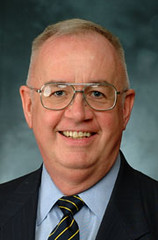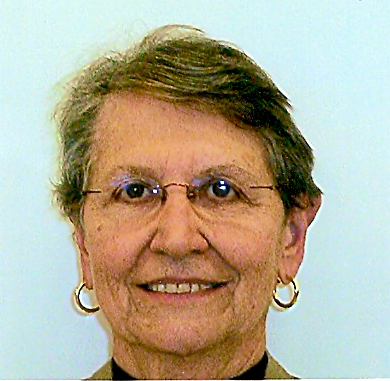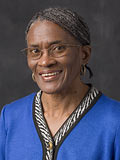Walker writes about the importance of the Black Code to regulate the movement of slaves in her book, Jubilee. The Black Code, also known as the slave code, monitored the movement of slaves and helped enforce the laws of slavery in the South. Here are a few resources to refer to when discussing the Black Code. How do you think you would address the topic of Black Codes in the classroom?
Thursday, April 23, 2009
The Black Code
Wednesday, April 22, 2009
Margaret Walker Discussion #1 Video
View part of the discussion on Margaret Walker's poetry! I hope you enjoy it!
Tuesday, April 21, 2009
Participating In Writing Institute

I was amazed yesterday when a coworker asked me about the book I was currently reading. Since participating in the 4Ws Writing Institute I have shared my love for the institute and shared the books and topics we have been covering. Apparently, I have shared so much that my coworkers know I am reading something new each month. Explaining to him that we are studying Margaret Walker, I shared with him her book of poetry. Unfamiliar with her poetry, he read her poetry intently and we even had a discussion about it. I am so happy to be apart of such a phenomenal experience. Being able to read wonderful books by Mississippi authors, along with discussing the books with such wonderful colleagues is priceless.
Friday, April 17, 2009
Haiku Friday!
 #422
#422 My cigarette glows
Without my lips touching it,
—A steady spring breeze.
Haiku: This Other World by Richard Wright
Guilty Conscience by Jamie Tate won the
2004 Southern Breeze "Lallah Award" for Most Innovative
from the Mississippi Art Colony.
(Psst - I think the art looks like the end of a cigarette.) ~Maggie
Monday, April 13, 2009
Creating Essays Using Margaret's Poetry
 Having students chose one of Margaret's poems and write a literary analysis essay is a great way to incorporate her works in the classroom. I found an essay on Margaret Walker on the Modern American Poetry website. You may find this essay helpful to use in the classroom.
Having students chose one of Margaret's poems and write a literary analysis essay is a great way to incorporate her works in the classroom. I found an essay on Margaret Walker on the Modern American Poetry website. You may find this essay helpful to use in the classroom.
Mystic Years Part Deux
 I'm very excited to see a new book on our shelves titled Capitol Men: The Epic Story of Reconstruction through the Lives of the First Black Congressmen by Philip Dray. Dray was in the running for a Pulitzer Prize for his work, At the Hands of Persons Unknown: The Lynching of Black America, that won two other awards that year. This book features the the lives of 16 black southerners who tried to change the government; woefully, they were out numbered by corruptible white congressmen during the Mystic Years of Reconstruction.
I'm very excited to see a new book on our shelves titled Capitol Men: The Epic Story of Reconstruction through the Lives of the First Black Congressmen by Philip Dray. Dray was in the running for a Pulitzer Prize for his work, At the Hands of Persons Unknown: The Lynching of Black America, that won two other awards that year. This book features the the lives of 16 black southerners who tried to change the government; woefully, they were out numbered by corruptible white congressmen during the Mystic Years of Reconstruction.I have not read it. I gave the library copy to one of our history teachers and she brought it back raving. She said, "It is readable history!" That leads me to believe not all history is readable. ~Maggie ;D
The Margaret Walker Research Center


Located on the campus of Jackson State University, the Margaret Walker Research Center "houses" records of the past to preserve the African-American culture. The center has an oral history collection database available online. Welcoming records, personal papers, and other important items related to African-American culture, the center also has items belonging to Margaret Walker. We were very privileged to have the opportunity to view Margaret's first journal, given to her by her father, documents written and typed by her, one of her favorite hats, and her typewriter. Dr. Harrison provided us with a tour of the amazing facility. Ironically, Maurine was able to discover that her field trip to Jackson State University with her students has been documented and added to the archives of the Margaret Walker Research Center. The pictures were taken at the center.


Thursday, April 9, 2009
New Mississippi Poet!

Help me get the word out, 4Ws! I am currently participating in Celebrate the South Blog Tour honoring poet Patricia Neely-Dorsey of Tupelo, Mississippi. I have her new book of poetry titled, Reflections of a Mississippi Magnolia: A Life in Poems, if anyone wants to read it and share with their classroom. I would like the book back afterwards to place in the library collection. Here is my contribution to the tour. ~Maggie
Visit Pat at her blog or purchase her book through Amazon.
Wednesday, April 8, 2009
The Tennessee Williams Rewrite

I did it! I did a Tennessee Williams rewrite!
My plan was to write about poetry this week, but then I looked at the calendar and freaked. My column's deadline is Wednesday at 12 p.m. and Welty's birthday is Monday. The newspapers tend to stagger my appearance with The Southern Reporter running the next day, Thursday, and The DeSoto Times-Tribune running two weeks later. The other three papers run Book Talk in the following week's edition.
It was either write it today or skip it all together. I decided to follow in Williams' footsteps and rewrite the post from Monday. I thought of Williams while in my panic. I remember Colby telling us he would rewrite over and over until he got the response he wanted from the audience. I want to provide the 4W readers with information. I want newspaper readers to pick up a book, any book, even if it is to throw at me!
Here is this week's Book Talk...Duck! ~Maggie
Tuesday, April 7, 2009
David Walker

Teaching Jubilee in the classroom can also incorporate history as well. After discussing Walker's poetry and realizing that she often refers to real people in her writings, I decided to look up David Walker. Aunt Sally goes to a secret meeting at Rising Glory Baptist Church and describes her interaction with the papers being discussed and her knowledge of David Walker. After doing much research, I learned some interesting things about David Walker. Born in North Carolina, David Walker used his pamphlet, "Appeal," to cause slaves to revolt against their master. A true abolitionist, David use his pamphlet to deliver his message throughout the south.
Teaching David Walker in the secondary classroom maybe somewhat difficult. Using this teacher resource can help you in teaching the history behind David Walker.
*Each link leads to different information on David Walker.Teaching David Walker in the secondary classroom maybe somewhat difficult. Using this teacher resource can help you in teaching the history behind David Walker.
Here are a list of other resources:
Monday, April 6, 2009
Harsh Reality of Slavery

Reading Jubilee has reignited my pure disgust towards the existence of slavery. It's amazing how Margaret Walker recaptures the persistent cruelty, the menacing hatred, and the harsh reality of Southern Gothic. Walker's ability to recreate such a tragic piece of history demonstrates how truly talented she was.
Chapter one ends with the death of an woman. What was the woman's name? How does her death impact you? What character stands out the most in chapter one?
Chapter one ends with the death of an woman. What was the woman's name? How does her death impact you? What character stands out the most in chapter one?
America's First Serial Killers!

In Eudora Welty: Some Notes on River Country edited by Hunter Cole, a quote from Welty as told to Dr. Peggy Prenshaw in Conversations with Eudora Welty included in Cole’s afterword, inspired my thoughts. Welty said, “Why, just to write about what might happen along some little road like the Natchez Trace—which reaches so far into the past and has been the trail for so many kinds of people—is enough to keep you busy for life.”
Just as William Faulkner set his novels in fictional Yoknapatawpha County and Tennessee Williams used the Clarksdale area as setting in most of his plays, Welty kept busy with stories set in the River Country between Vicksburg and Natchez. These stories include her book The Robber Bridegroom and short stories: A Worn Path, Asphodel, First Love, A Still Moment, Livvie, and At the Landing.
Cole continues, “It is known that she had read Audubon’s diaries, J.F.H Claiborne’s Mississippi narratives, and Robert M. Coates’s The Outlaw Years: The Land Pirates of the Natchez Trace and wished to verify the history these told."
I, too, wish to verify a sentence mentioned in Welty’s Some Notes on River Country. Welty wrote, “Deep under them both is solid blue clay, embalming the fossil horse and fossil ox and the great mastodon, the same preserving blue clay that was dug up to wrap the head of the Big Harp in bandit days, no less a monstrous thing when carried in for reward.”
What! How disgusting! Is this really true and why haven’t I heard of said Harp, Big or Little?
The Robber Bridegroom and Eudora Welty: Some Notes on River Country are perfect companions to a class on Mississippi history. Yes, I know RB is fictional, but sometimes it takes a story to get students interested. I surely want to know more about the Harps, Mike Fink, Lorenzo Dow, John Murrell, Aaron Burr, Harmon Blennerhassett, and John James Audubon’s search for the ivory-billed woodpecker in Mississippi. ~Maggie
Labels:
Eudora Welty,
History,
teaching Eudora Welty,
websites
4Ws Facebook Page
Here is the link to the 4Ws Writing Institute Facebook Page. Please make sure you become a fan, so that we can keep in contact after the writing institute. I have started a discussion topic on Jubilee. Remember that we are reading Jubilee for next month. Make sure you bring a poem you wrote about your life!
Labels:
Facebook,
Jubilee,
Poetry,
teaching Margaret Walker
Sunday, April 5, 2009
Shout Out to Panny Mayfield! Thanks for the article!

We had an awesome time during our discussion of Tennesse Williams in Clarksdale, MS! Panny Mayfield was an exceptional host. Check out an article in the Clarksdale Press Register about our visit! Hope you enjoy!
Saturday, April 4, 2009
Margaret Walker Discussion #1

Walker extends the oral tradition, emphasizing the folklore in her poetry. In Walker's poetry, she takes actual people, events, and traditions and transform them into her own. She uses traditional ballad forms in her poetry. Her volume of poetry, October Journey, includes several examples of ballads in her poetry. Many of her poems include emphasis on the South as an "ancestral homeland" and juxtaposing the past with the present. However, she does not romanticized previous Southern culture.
Her poetry includes reclamation - an unpleasant experience for some readers. Often not apologetic, Walker's poetry tends to be bold. Humanity and dignity is constantly used through her poetry. She emphasizes the humanity of it all. Typical southern gothicism exists in her poetry. Images of the violent south exists throughout her poetry. She proves to be a "southern gothic writer." Walker's poem, "Delta," provides a unique combination of various elements related to the south.
Elevated rhetoric, literary tools, parallelism, and language beyond normal use is important in Walker's poetry. Biblical cadence, which can be heard in sermons, can be heard in Walker's poetry (e.g. "Delta" and "Hosea"). Walker has a unique connection to visual artists.
Applying Walker in the Classroom:
- Teaching literary elements: Take one of Walker's poems and have students identify literary elements.
- Writing about your life: Have students read one of Walker's poems and create a poem about their life, referring to the chosen poem.
- Comparison: Compare poems "For My People" and "I've Known Rivers" by Langston Hughes. Have students write their comparison, while playing the sound of a river running. Have students applying the literary tool, parallelism.
- Teaching Poetry and Establishing Confessional: Use Walker's poetry to identify your own bias and have students identify their own vulnerability and bias.
Poems discusssed in today's discussion:
- Ex-Slave
- For My People
- Delta
- Lineage
- Today
- Yalluh Hammuh
- Teacher
- Long John Nelson and Sweetie Pie
- Whores
- Street Demonstration
- Girl Held Without Bail
- For Andy Goodman, Michael Schwerner, and James Chaney
- Jeremiah
- Isaiah
- Amos
- Amos (Postscript, 1968)
- Joel
- Hosea
- Micah
- Ballade of the Hoppy-Toad
- October Journey
- I Want to Write
- For Gwen 1969
- Ballad for Phillis Wheatley
- Medger Evers
- Jackson State
Subscribe to:
Comments (Atom)











